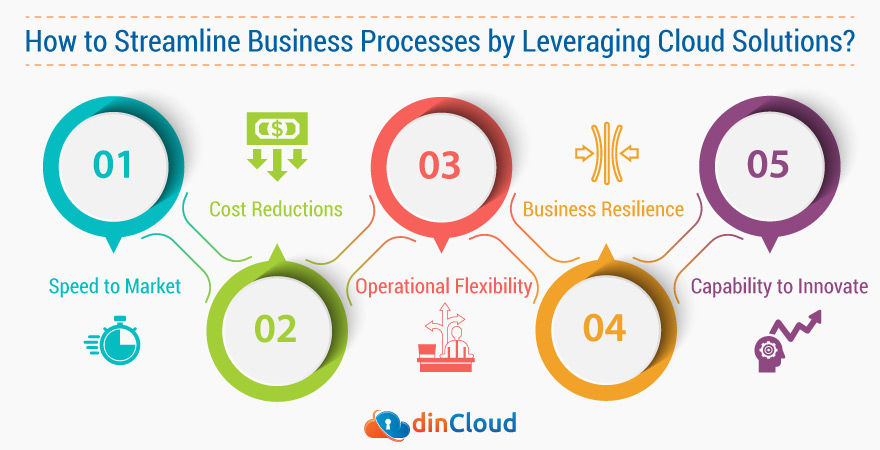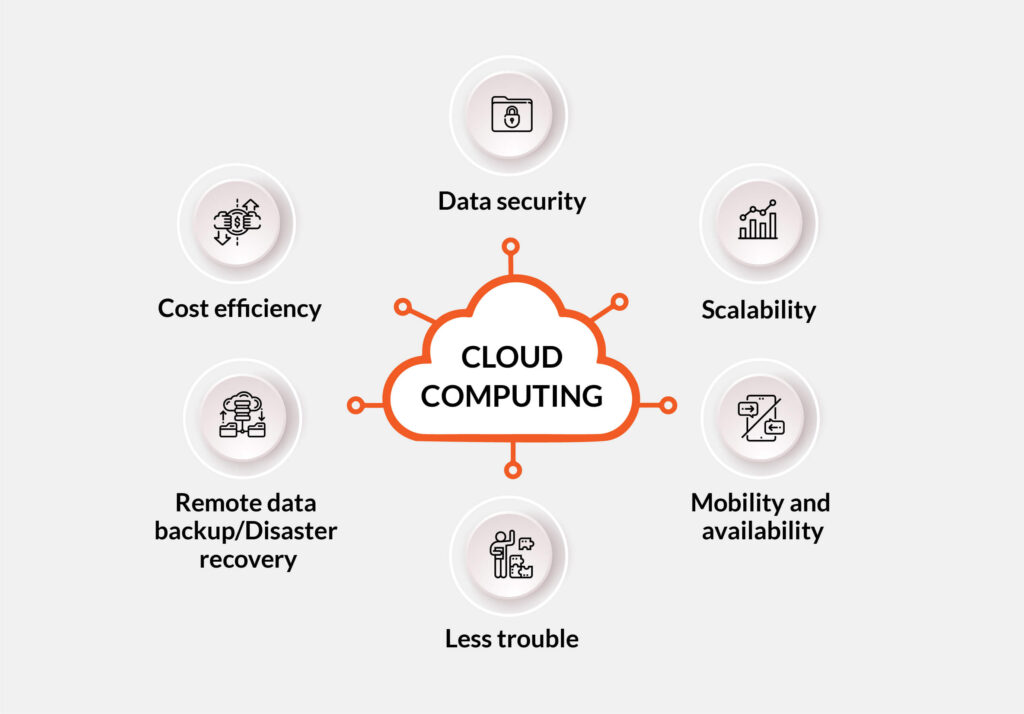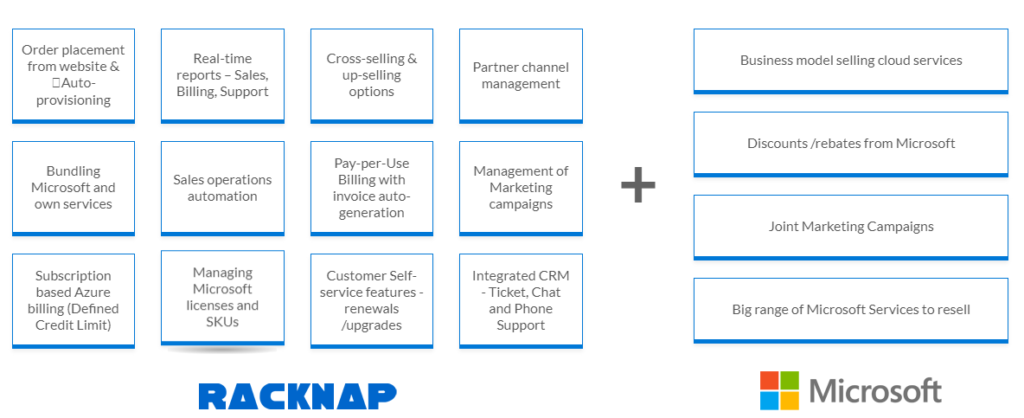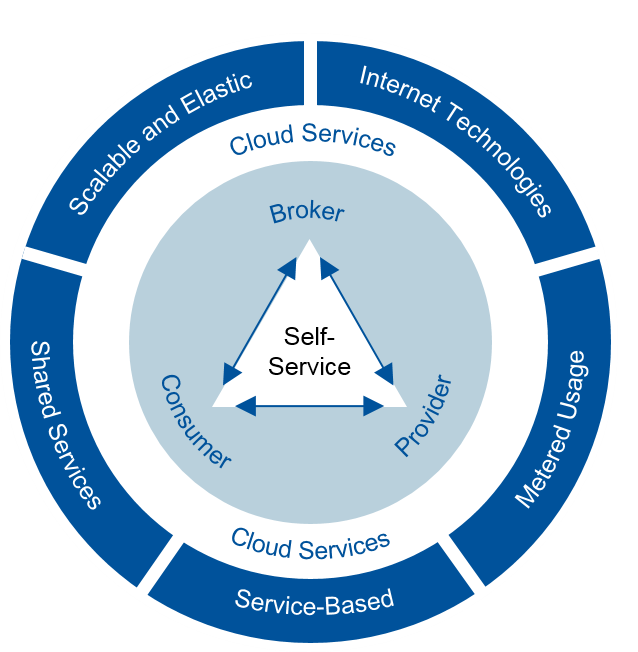Cloud services have revolutionized the way businesses operate in the modern-day era. It has opened up a world of possibilities in terms of data storage, accessibility, and collaboration. With cloud computing, businesses can now take advantage of a wide range of online services, including software applications, storage, and data analysis, all on a virtual platform. Cloud services have become an integral part of business processes, allowing organizations to streamline their operations and achieve greater efficiency.
In this article, we will explore how cloud services streamline a company’s business process. We will delve into the many benefits of cloud computing, such as improved collaboration, scalability, and accessibility. We will also discuss the various cloud services available to businesses and how they can be tailored to meet specific organizational needs. By understanding the potential of cloud computing, businesses can take advantage of its many benefits and stay ahead of the competition in today’s fast-paced business world.

How Cloud Services Streamline a Company’s Business Process
Cloud services provide a platform to store and share data online, allowing companies to improve the efficiency of their business processes. By utilizing cloud services, companies can access their data anytime, anywhere, and can also access the latest updates and applications. This allows companies to be more flexible and efficient in their operations, as well as more cost-effective.
Data Storage and Sharing
One of the most important benefits of cloud services is the ability to store and share data. Companies can store their data in the cloud, allowing them access from any device or location. This eliminates the need for physical storage solutions, such as servers or hard drives, which can be expensive and difficult to maintain. Furthermore, the data can be shared with other users within the company, allowing for easier collaboration and communication.
Cloud services also provide data security, ensuring that the data is safe from any unauthorized access. This includes encryption, authentication, and access control measures, which protect the data from being accessed or modified without permission. This ensures that the data remains secure, even if the device is lost or stolen.
Software Updates and Applications
Another benefit of cloud services is the ability to access the latest software updates and applications. This allows the company to keep up with the latest technology, ensuring that their systems are running at peak efficiency. Furthermore, the cloud also allows companies to access applications that are not available on their devices, such as web-based applications or specialized software.
Cloud services also provide a platform to deploy applications quickly and easily. This eliminates the need for manual installation, which can be time-consuming and expensive. Furthermore, the applications can be updated quickly, ensuring that the company is always running the latest version.
Cost Savings
Utilizing cloud services can also save companies money. By eliminating the need for physical storage solutions, companies can save on hardware and maintenance costs. Furthermore, the cloud eliminates the need for manual installation and updates, allowing companies to save on labor costs. This can result in significant savings, especially for larger companies.
Cloud services also provide scalability, allowing companies to expand or reduce their services as needed. This eliminates the need to purchase additional hardware or software, as the cloud can be adjusted to meet the needs of the company. This allows companies to save money by only paying for the services they need.
Improved Efficiency
Finally, cloud services can improve the efficiency of a company’s business processes. By having access to data and applications from any device or location, companies can work more quickly and effectively. This can result in improved productivity and customer satisfaction, as well as an overall increase in profitability.
Furthermore, cloud services provide a platform for collaboration and communication. This allows for the sharing of ideas and resources, which can lead to more efficient processes and better decision-making. This can result in improved customer service and a more efficient workflow.
Frequently Asked Questions
Cloud services can streamline a company’s business processes in many ways. By making use of cloud-based technologies, companies can reduce the need for physical infrastructure, cut down on manual processes, and increase the efficiency of their operations.
What are Cloud Services?
Cloud services are technologies that enable organizations to store, access, and manage data through the internet. These services provide a way for businesses to access data and resources from anywhere in the world, without having to build or maintain their own physical infrastructure. Examples of cloud services include cloud storage, file sharing, software as a service (SaaS), and platform as a service (PaaS).
How do Cloud Services Streamline a Company’s Business Process?
Cloud services can streamline a company’s business processes in a number of ways. By leveraging cloud-based technologies, companies can reduce the need for physical infrastructure, cut down on manual processes, and increase the efficiency of their operations.
For instance, with cloud services, companies can access large amounts of data and resources remotely, eliminating the need for physical storage and maintenance. Cloud-based software and platforms can also automate many of the manual processes associated with running a business, such as time tracking and invoicing. Additionally, cloud services can allow companies to scale their operations quickly and easily by providing access to new resources and technologies as needed.
What are the Benefits of Using Cloud Services?
The main benefit of using cloud services is that it can reduce the cost of running a business. By leveraging cloud technologies, companies can reduce the need for physical infrastructure, cut down on manual processes, and increase the efficiency of their operations. Additionally, cloud services can provide access to resources and technologies that may not be available locally, allowing companies to scale quickly and easily.
Finally, cloud services can help to increase collaboration within an organization. By leveraging cloud-based tools, teams can access data and resources from anywhere in the world, reducing the need for physical meetings and improving communication between team members.
What are the Risks of Cloud Services?
One of the main risks of using cloud services is the potential for security breaches. As cloud services provide access to large amounts of data and resources, it increases the risk of unauthorized access and data theft. To mitigate this risk, companies should ensure that they have robust security measures in place, such as encryption and multi-factor authentication.
Additionally, cloud services can be vulnerable to outages, meaning that data and resources may not be available when needed. To reduce the likelihood of downtime, companies should ensure that they have adequate redundancy and backup plans in place.
How Does a Company Choose the Right Cloud Service?
When choosing a cloud service, companies should consider their specific business needs and budget. They should also look for services that provide robust security measures and reliable uptime. Additionally, companies should look for services that are easy to use and integrate with existing systems. Finally, companies should look for services that offer scalability, allowing them to easily increase or decrease their usage as needed.

In conclusion, cloud services have revolutionized the way businesses operate. By leveraging the power of cloud computing, companies can streamline their business processes and achieve greater efficiency, flexibility, and productivity. Cloud services provide businesses with a scalable and cost-effective way to manage their IT infrastructure, store and access data, collaborate with team members, and deliver services to customers.
As more and more businesses move their operations to the cloud, the benefits of cloud services become increasingly apparent. With cloud services, businesses can focus on what they do best while leaving the technical details to the experts. Cloud services enable companies to be more agile and responsive to changing market conditions and customer needs. Ultimately, cloud services are a game-changer for businesses of all sizes, enabling them to compete more effectively in the digital age.



